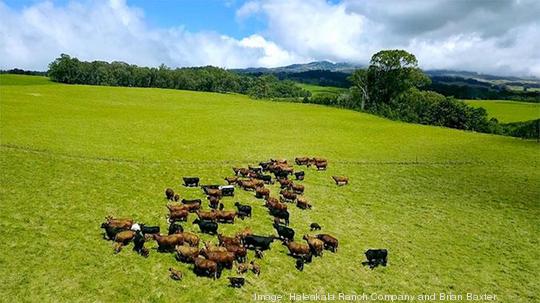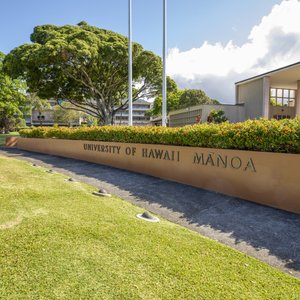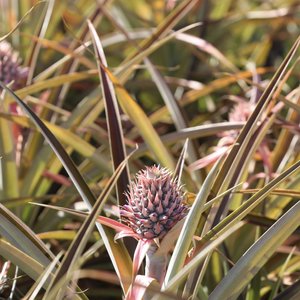
A team of researchers from the University of Hawaii at Manoa is the scientific and creative lead on a $40 million grant from the U.S. Department of Agriculture, it was announced Tuesday.
According to an announcement from UH, the grant — which is part of a $2.8 billion investment into 70 projects nationwide by the USDA to support farmers, ranchers and private forest landowners — aims to help Hawaii farmers, ranchers and foresters implement "sustainable, climate-smart practices" and establish markets that "live beyond the life of the grant for locally produced, healthy food and forest products."
The USDA Partnerships for Climate-Smart Commodities aims to "expand markets for climate-smart commodities, leverage the greenhouse gas benefits of climate-smart commodity production and provide direct, meaningful benefits to production agriculture, including for small and underserved producers," the program website notes.
According to the university, the grant funding will be administered through the Lynker Corp. Pacific Island and West Coast Division and managed by Christopher Hawkins.
A sub-award of at least $10 million will go to UH Manoa's College of Tropical Agriculture and Human Resources, or CTAHR.
CTAHR associate professor Susan Crow is the principal investigator and will lead a full-time project team, the university said.
In a video provided with the announcement, Crow said the grant aims to help local producers implement "climate-smart practices and build healthy resilience back into their land."
"Some of those climate practices include things like large scale koa reforestation, inclusion of trees into some of our pasture lands, increased biodiversity of grazing areas and redirecting waste streams into soil amendments such as compost."
According to the announcement, the team aims to combat climate change through nature-based solutions in natural and working lands; reduce and reuse waste for fertilizer and soil amendment; create a resilient and abundant local food supply; and provide healthier food options, ultimately creating a healthier state population.
“We have four objectives for meeting these goals, starting with overcoming the many persistent implementation barriers, which we’ll do through investment and incentives,” Crow said in a statement. “We will also improve technical assistance through a network of community-based organizations, build decision support tools for verification and monitoring and generate internal momentum for a market-based sustainable food system.”
Crow said in the announcement that within the first year, the coalition will provide millions of dollars of financial assistance to dozens of producers to improve their sustainability practices, and over time, the coalition will identify, fund and implement an "inclusive, community-based approach to identifying and supporting the needs of underserved producers."
“Ecologically sustainable food production is more important than ever, not just for sustenance, but for the health and resilience of our economy and community,” Albie Miles, UH West Oahu assistant professor of sustainable community food systems, said in a statement. “Climate-smart farming practices are a key part of the transformation of our food system toward health, equity, resilience and sustainability.”
According to the announcement, the coalition that submitted the proposal, the “Hawaii Climate Smart Commodities: A portfolio approach to equitably scaling the agriculture sector,” includes the Hawaii Cattlemen's Council, Oahu Resource Conservation and Development Council, Hawaii Farmers Union United, the Kohala Center, Pacific Gateway Center, Forest Solutions Inc., state Department of Land and Natural Resources Division of Forestry and Wildlife, Oahu Agriculture and Conservation Association, UH, University of Florida, Colorado State University, Natural Resource Data Solutions, Lynker, Transforming Hawaii’s Food Systems Together, state Department of Agriculture and a number of supporting external initiatives such as the Aloha + Challenge, Hawaii Greenhouse Gas Sequestration Taskforce and FarmLink. Grant application support was provided through the Ulupono Fund at the Hawaii Community Foundation.



